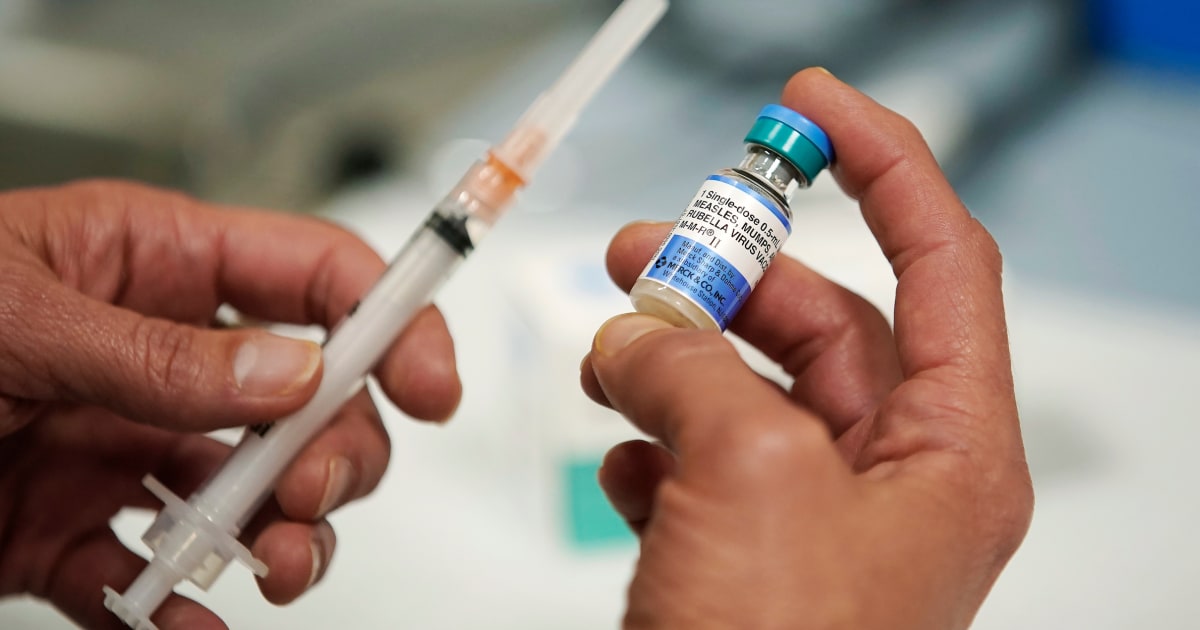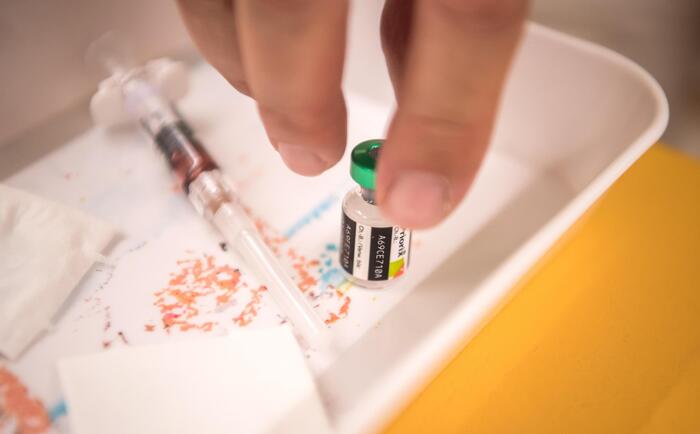Oscar Martínez Pérez (Madrid, 53 years old) is a specialist in the gynecology service of the Puerta de Hierro Hospital and principal investigator of the ObsCOVID registry, which with funding from the Carlos III Health Institute has woven a network of 86 large hospitals to measure the impact of the pandemic among pregnant women.
He was one of the professionals who at the end of July took a step forward to warn of the increase in deaths among pregnant women that the fifth wave was causing.
Also to demand that the communities accelerate the vaccination of this group, a process that has hitherto been weighed down by the contradictory information that future mothers received.
Question
.
Has this fifth wave also been that of pregnant women?
Answer.
Definitely.
We have seen numbers of hospitalizations, ICU admissions and deaths not seen since March 2020. And in many places they have been worse.
More information
More than 500 pregnant women have been admitted because of the covid in Catalonia since January
Gynecologists call to vaccinate pregnant women after the death of three pregnant women
Q.
Why?
R.
After the first wave, the fear of the virus made pregnant women take great care of themselves.
Then, in a process that began after the third wave and accelerated with the end of the state of alarm and the good weather, they were reincorporating to their work and social life in an environment with relaxed protections.
This coincided with the development of the vaccination campaign, which did not take them into account as a risk group.
Not only that, but most of the time they received inadequate information that caused them not to get vaccinated.
Add to all this the arrival of the delta variant.
Q.
A perfect storm ...
A.
Exactly.
You have a population at higher risk, unvaccinated and exposed to a highly contagious variant in an environment of widespread relaxation of protective measures.
Until the end of July, only 10% of the women who gave birth were vaccinated.
It was the worst possible scenario.
Q.
What is the risk of the coronavirus for pregnant women?
R.
In the age group from 30 to 39 years, the admission to the ICU is 2%, ten times more than other women of that age.
The risk of death is three per 1,000.
These are very important figures, somewhat lower in the 20 to 29 age group.
But in Spain many pregnancies occur well into their thirties.
Q.
And are you concentrating on the third trimester?
A.
Not alone.
In the first there is no evidence that the virus increases the risk of miscarriage or malformations.
But in the second there is a certainty that the risk of intrauterine fetal death increases.
At the end of this trimester, as in the third, the risk of prematurity increases.
And for women, pneumonia, admission to the ICU and other associated complications, such as thromboembolism and bleeding.
All of this increases in the last trimester, when preeclampsia also erupts, a multi-organ condition that raises tension and also makes it necessary to advance labor.
Q.
You alerted at the end of July that three women had died in the previous month.
This Thursday we learned about another case in Seville and on Friday another in Gijón.
Has there been more?
A.
Yes, but we do not have a systematic registry.
P.
Some communities did not recognize that they had registered deaths.
R.
Since before the pandemic we have a serious problem of underestimating maternal mortality from hospitals.
Studies place it in 48% of cases.
That's a lot.
Q.
How is it possible?
R.
First, because we only reliably collect maternal mortality directly attributable to an obstetric cause.
But the indirect one, which is when the pregnancy aggravates a previous pathology, we do not usually register it.
And second, we also record well the deaths that occur in the hospital during or immediately after delivery.
But up to 40 days, maternal mortality is still considered and that is not properly recorded.
Q.
The vaccination strategy included pregnant women in its seventh update, published on May 11.
Not as a priority group, but to be vaccinated with your age group.
Despite this, we have seen communications from the end of June in which doctors told their patients not to get vaccinated.
A.
Yes, it has been a general problem.
They were told the exact opposite of what they needed to hear.
And the one who, despite everything, tried to get vaccinated, had to compete to get an appointment with people of the same age with a risk 10 times lower.
Q.
What has gone wrong?
R.
Many things.
The communication structure between the Ministry of Health, the communities, the obstetric professional societies and associations, and the doctor and midwives in the consultations is not very well oiled.
Most professionals did not receive adequate information to transmit to their patients.
There is a lack of prestigious institutions and scientific leadership that align all actors with a common goal.
The ministry does not exercise that leadership and neither do scientific societies.
So each community acts a little on its own.
P.
But the ministry and communities agree on their policies within the Public Health Commission and rely on the Vaccine Report.
A.
Yes, but at the moment of truth no one developed specific vaccination programs for pregnant women.
They did not even manage to get those they touched by age vaccinated.
Most likely because they underestimated the risk despite having the data, which reveals another problem: the absence of agile information systems that would have made it possible to detect what was happening in time.
Q.
What do you mean?
A.
Before a woman dies, she has first become ill.
Then she was hospitalized and admitted to the ICU.
What has happened now is that we have only detected the seriousness of what was happening with the deaths, when it was too late.
And we detected it largely through ObsCOVID, which is fine, but not the official channel.
With good information systems, the administrations would have detected these increases earlier and, as has been seen later, many problems could have been avoided.
Q.
Are you sure?
A.
Yes. Everything changed on July 28. Some community [Andalusia] urged pregnant women to get vaccinated that morning. Then EL PAÍS published that three women had died [after being alerted by professionals], which caused other media to echo what was happening. The reaction of the rest of the communities was immediate. In just a day or two they reviewed their data and became aware of the problem. One after another, they designed and established rapid vaccination circuits. The professionals began to recommend it and the pregnant women went en masse to the health centers. Everything was done very quickly and it was done well, also in the middle of the summer and with depleted templates. It is not, therefore, a problem of capacity or lack of means. It is a matter of strategic decision making.
P.
From what you describe, it seems that what there was was a systemic failure.
A.
Without a doubt.
The death of an unvaccinated pregnant woman at this point in the pandemic, with the available evidence and without having received adequate information, reveals a systemic failure of the health network.
Q.
What needs to be improved?
R.
The first, governance in administrations.
There is also a need for greater leadership from scientific institutions and societies.
And finally, the information systems.
I always say that if I go to Castellón and try to withdraw money from my account domiciled in Madrid, which is negative, they won't let me.
But if I go to the doctor and tell him that I have a disease that I don't really have, he has to believe it because he doesn't have an information system where he can verify it.
Q.
What is the current situation?
R.
We are in the tail of the fifth wave.
There are still pregnant women in the ICU of many hospitals, but their number is no longer increasing, on the contrary.
In addition, the climate has changed a lot.
Communities have created rapid circuits, professionals are clear about the information to give, there is full awareness of the safety and efficacy of vaccines, and women are coming to be vaccinated at a very good pace.
P.
And what lies ahead?
A.
We need to define disease profiles to improve and personalize care.
We also need to see if the third dose can be beneficial for pregnant women.
And we still have to find out if they will suffer long-term consequences from the covid, as has already been seen in other groups.

/cloudfront-eu-central-1.images.arcpublishing.com/prisa/6VDLWOUWHROV2RQQYALFKPPASY.jpg)







